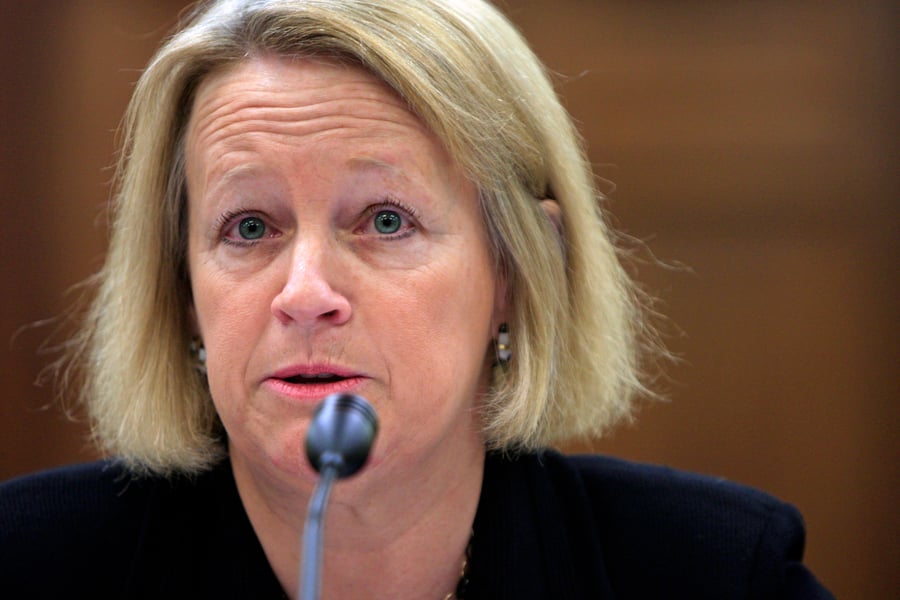The securities industry will receive proposals this week to improve record-keeping in the stock market and coordinate rules on erroneous trades, two concerns that were highlighted by the May 6 selloff.
The securities industry will receive proposals this week to improve record-keeping in the stock market and coordinate rules on erroneous trades, two concerns that were highlighted by the May 6 selloff.
The U.S. Securities and Exchange Commission will release a plan to capture all order information in equities, known as a consolidated audit trail, on May 26, according to a statement on its website. The Financial Industry Regulatory Authority and exchanges will begin work on a policy to determine when trades should be canceled.
“One of the challenges we face in recreating the events of May 6 is the reality that technologies used for market oversight and surveillance have not kept pace with the technology and trading patterns of the rapidly evolving and expanding securities markets,” SEC Chairman Mary Schapiro said in testimony before the Senate banking committee on May 20. “A consolidated audit trail would be invaluable to enhance the ability to detect and monitor aberrant and illegal activity across multiple markets.”
Regulators are sifting through as many as 10 terabytes of data on the plunge, which erased $860 billion of market value in less than 20 minutes. The SEC and Commodity Futures Trading Commission proposed six potential causes last week, highlighting connections between futures and equities trading, curbs that applied at the New York Stock Exchange and not elsewhere, and an unwillingness to provide bids and offers by electronic traders.
Finra, which provides market surveillance and oversight of broker-dealers with customer businesses, is working to combine and expand two separate order audit trails for stocks listed on NYSE and Nasdaq Stock Market, Richard Ketchum, the group's chief executive officer, said in an interview on May 4.
“Audit trail requirements vary between markets, resulting in a lack of current, readily accessible securities order and execution data,” Schapiro said in the Senate hearing on May 20. She said the SEC has been working with the exchanges and Finra on an audit trail system since last summer.
Finra and the exchanges are developing a policy to decide when trades considered “clearly erroneous” should be broken. The meeting will be tomorrow, Larry Leibowitz, chief operating officer of NYSE Euronext, said at the Senate hearings on May 20.
U.S. exchanges agreed on May 6 to break trades that were 60 percent or more away from their price at 2:40 p.m., when the selloff intensified. Transactions in 326 securities, 70 percent of which were exchange-traded funds, were broken on May 6. Of the 20,800 separate trades broken, 59 percent were canceled by Nasdaq, 24 percent by NYSE Arca, 5 percent by Bats Exchange and 9 percent on over-the-counter markets.
Exchange officials had a “significant debate” about where to set the threshold in a conference call after the plunge, according to congressional testimony by Eric Noll, executive vice president for transaction services at Nasdaq OMX Group.
“To have a market that works rationally you need to know what the rules are,” said Steve Chmielewski, chief operating officer and general counsel at JonesTrading Institutional Services in Westlake Village, California. Chmielewski said he wants to know who benefited from trades being canceled and who lobbied for that action. “What was the process?” he said.
“We need a process that is much more transparent, provides certainty in advance about what trades will be broken and which ones won't, and create fairness for investors,” Schapiro said in the Senate hearing. The lack of a policy could also curtail beneficial trading if it “discourages buyers coming in at a very low point and providing liquidity, for example, because their trades may be broken,” she said.
The SEC has been proposing changes to equities and options market structure since last September. It suggested limiting the ability of dark pools to seek new orders to match existing ones without displaying quotes publicly, and eliminating flash orders, or information shown to a segment of participants in the market. In January the SEC proposed requirements that would prevent firms receiving direct access to markets from skipping the risk-control checks of their brokers.
The SEC outlined a system last month requiring traders that transact 2 million shares a day to use an identification code when they do business. On May 19, the industry and Finra proposed circuit breakers that will pause trading in stocks that fall 10 percent within five minutes from 9:45 a.m. until 3:35 p.m. New York time. The SEC will vote on the proposals after a 10-day public comment period and will consider expanding the pilot program, which ends Dec. 10, beyond the stocks in the Standard & Poor's 500 Index.







